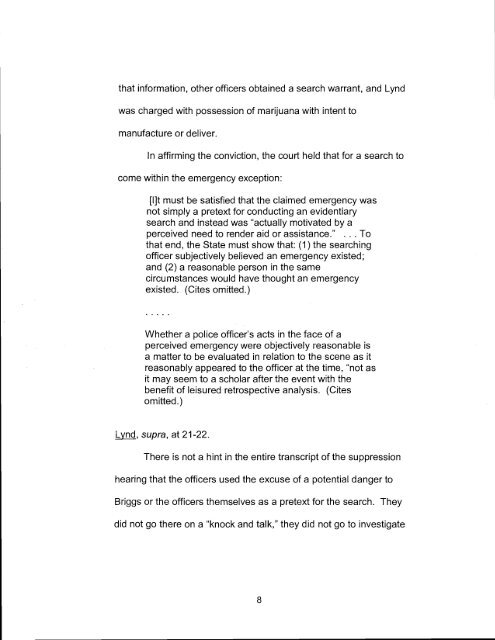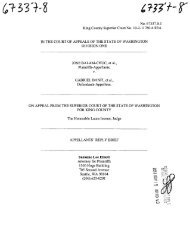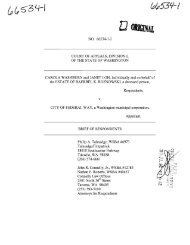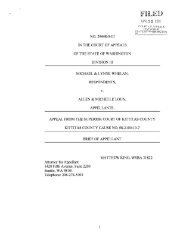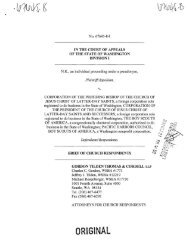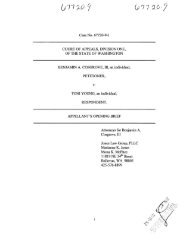Appellant's Brief - Washington State Courts
Appellant's Brief - Washington State Courts
Appellant's Brief - Washington State Courts
Create successful ePaper yourself
Turn your PDF publications into a flip-book with our unique Google optimized e-Paper software.
that information, other officers obtained a search warrant, and Lynd<br />
was charged with possession of marijuana with intent to<br />
manufacture or deliver.<br />
In affirming the conviction, the court held that for a search to<br />
come within the emergency exception:<br />
[I]t must be satisfied that the claimed emergency was<br />
not simply a pretext for conducting an evidentiary<br />
search and instead was "actually motivated by a<br />
perceived need to render aid or assistance." . . . To<br />
that end, the <strong>State</strong> must show that: (1) the searching<br />
officer subjectively believed an emergency existed;<br />
and (2) a reasonable person in the same<br />
circumstances would have thought an emergency<br />
existed. (Cites omitted.)<br />
Whether a police officer's acts in the face of a<br />
perceived emergency were objectively reasonable is<br />
a matter to be evaluated in relation to the scene as it<br />
reasonably appeared to the officer at the time, "not as<br />
it may seem to a scholar after the event with the<br />
benefit of leisured retrospective analysis. (Cites<br />
omitted.)<br />
Lvnd, supra, at 21 -22.<br />
There is not a hint in the entire transcript of the suppression<br />
hearing that the officers used the excuse of a potential danger to<br />
Briggs or the officers themselves as a pretext for the search. They<br />
did not go there on a "knock and talk," they did not go to investigate


